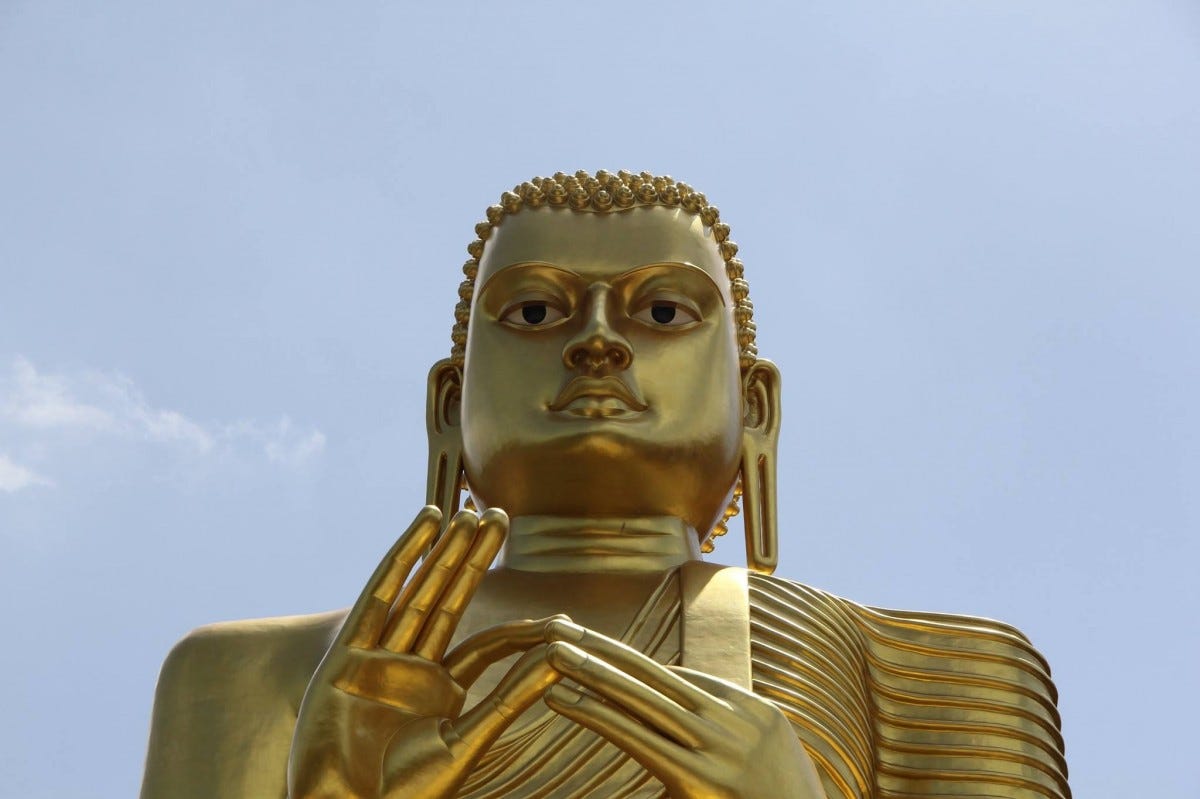
The Zen koan “When you meet the Buddha, kill him,” explained
Zen koans are paradoxical phrases and questions with seemingly no meaning or answer, and one of my favorites is, “When you meet the Buddha, kill him.”
While most koans tangle my mind in knots, this one reminds me of what meditation is all about: awakening my potential to be open rather than closed off. It reminds me to stop looking somewhere else — to a god, to a teacher, to becoming rich, to ending capitalism, etc. — to find the end of my suffering.
Shunryu Suzuki, Zen monk and author of the brilliant book Zen Mind, Beginner’s Mind, put it this way: “Kill the Buddha if the Buddha exists somewhere else. Kill the Buddha, because you should resume your own Buddha nature.”
What did he mean by Buddha nature? Our ability to be courageous and open to what we don’t know. Our ability to be free no matter the conditions. Our ability to allow others to enjoy their freedom, even if it makes us uncomfortable. Our ability to set boundaries with others to protect ourselves.
Buddha nature is another way of saying humanity. The Buddha, the east Indian prince who broke with the religious traditions of his day, taught that what we’re all searching for is right here inside of us, not in the sky or in a temple — not somewhere else. This was a powerful, even radical, teaching in a society organized by caste. It meant that everyone had the potential to be free, not just men with property and religious power at the top rungs of the system. In many religions and ideologies — even Buddhism after it was popularized — the powerful wield a higher power (God, the free market, etc.) to keep the powerless in check.
Meditation is the practice of returning to our humanity, our presence — our Buddha nature — whenever our mind wanders astray. It slows us down enough to allow us to notice how our mind is constantly searching for something outside of itself to ease pain or extend pleasure.
“Usually, without being aware of it, we try to change something other than ourselves, we try to order things outside us,” Suzuki wrote.
Meditation is practicing being aware of it, and then having compassion for your self for your little manipulative attempt to change something or someone else — that’s just being human, that’s just how the mind works. Kill the Buddha — the thing we expected to solve our problems — but with compassion.
The word “kill” is important. When we’re bothered by or attracted to something, we create an enormous amount of energy, which must go somewhere. The most dangerous people are those who don’t realize they are looking outside themselves for satisfaction and then take out their dissatisfaction on others. They are the reactionary politicians, misogynists, white supremacists, and other bigots. They are the men that manipulate women into having sex without consent. They turn that energy towards blaming, hurting, and using other people.
The capacity to hurt others is within all of us. So we must turn that energy towards compassionately killing the Buddha, i.e., letting go of whatever outside of us we think will ease our suffering.
Beyond basic needs like food, water, and shelter, nothing outside of yourself will satisfy you. You already are satisfied — you just need to practice over and over again to remember.
Ready to get serious about meditation?
Sign up for Liberation Notes, my weekly email on meditation and bringing mindfulness to everyday life, even politics.
I wrote a guide to starting a daily meditation practice — get it here for free.
